The Creators: A History of Heroes of the Imagination
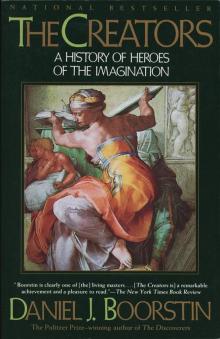

Author: DANIEL J. BOORSTIN
Category: Other3
Published: 2012
Series:
View: 527
Read OnlineBy piecing the lives of selected individuals into a grand mosaic, Pulitzer Prize-winning historian Daniel J. Boorstin explores the development of artistic innovation over 3,000 years. A hugely ambitious chronicle of the arts that Boorstin delivers with the scope that made his Discoverers a national bestseller.Amazon.com ReviewHistorian Daniel J. Boorstin brings his customary depth and range to this compelling book on Western art, taking on everything from European megaliths (Stonehenge, for example) to Benjamin Franklin's autobiography ("the first American addition to world literature"). Boorstin does not aim at being comprehensive--he much prefers to linger over certain "heroes of the imagination" as he surveys human accomplishment in the fields of architecture, music, painting, sculpting, and writing--yet The Creators certainly feels comprehensive, as Boorstin carefully places everything he describes within a grand tradition of aesthetic achievement. Boorstin knows that good history demands good writing, and his prose makes this big book easy to absorb. "This is a story," he writes, "of how creators in all the arts have enlarged, embellished, fantasized, and filigreed our experience"--an apt description of the role art plays in our life and an equally apt description of the way Boorstin interprets it for readers. (The Creators also is the second volume of a trilogy that starts with The Discoverers and concludes with The Seekers, although none of these books requires any knowledge of the others.) --John J. MillerFrom Publishers WeeklyIn an ambitious companion volume to The Discoverers, Boorstin undertakes an interpretative history of creativity in Western civilization encompassing all the arts. Creativity, he suggests, is a relatively recent phenomenon with Judeo-Christian roots: the Jews' covenant with Yahweh "sealed . . . man's capacity to imitate God as a creator," and Christianity, by turning our gaze to the future, "played a leading role in the discovery of our powers to create." In the eminent historian's Eurocentric scenario, the Buddha "aimed at Un-Creation" and intimated the existence of a supreme power who was "no model for man the creator." Likewise, Boorstin presents Islamic religion as "the inhibitor of the arts," and his chapter-length forays into Chinese painting and Japanese architecture are unsatisfying, leaving the impression that the truly great creative endeavors are the province of the West. Nevertheless, this is an enormously stimulating volume, an epic work of immeasurable riches. Boorstin contemplates architects' attempts to conquer time and outlast the brief span of human life through prehistoric megaliths, Egypt's pyramids, Greek temples, the Roman Pantheon and modern-day skyscrapers. He offers wonderfully attuned readings of varied versions of the human comedy from Boccaccio and Chaucer to Balzac. Modern writers, he asserts, created the self by probing "the wilderness within," as chapters here on Melville, Dostoyevski, Kafka, Joyce and Virginia Woolf attest. Highly opinionated and quirky, Boorstin says virtually nothing about Mozart's unique triumphs of the spirit, yet he exalts Beethoven as a "prophet and pioneer." Packed with shrewd, pithy judgments and entertaining biographical profiles of Dante, Da Vinci, Goethe, Ben Franklin, Picasso and dozens more, this eloquent, remarkable synthesis sets the achievements of individual creative geniuses into a coherent narrative framework of humanity's advance from darkness and ignorance. First serial to U.S. News & World Report; BOMC main selection. (Sept.) .Copyright 1992 Reed Business Information, Inc.
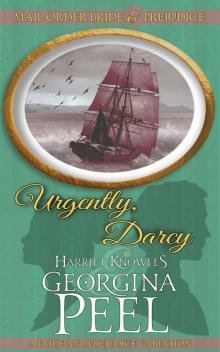 Urgently, Darcy
Urgently, Darcy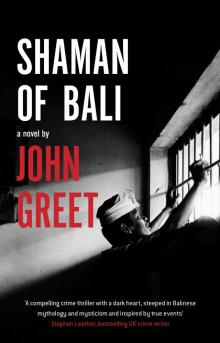 Shaman of Bali
Shaman of Bali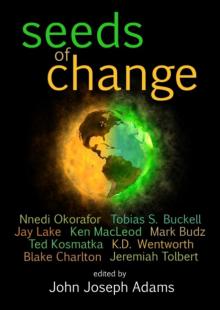 Seeds of Change
Seeds of Change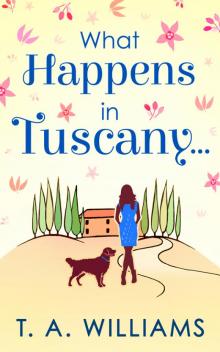 What Happens in Tuscany...
What Happens in Tuscany... By Mistake
By Mistake Brooklyn Bombshells--Part 2
Brooklyn Bombshells--Part 2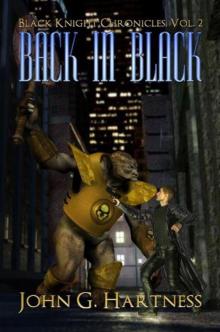 Black Knight 02 - Back in Black
Black Knight 02 - Back in Black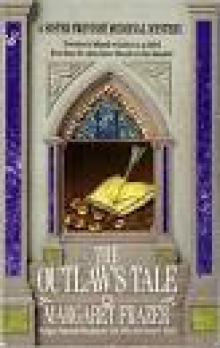 The Outlaw's Tale (Sister Frevisse Medieval Mysteries)
The Outlaw's Tale (Sister Frevisse Medieval Mysteries)